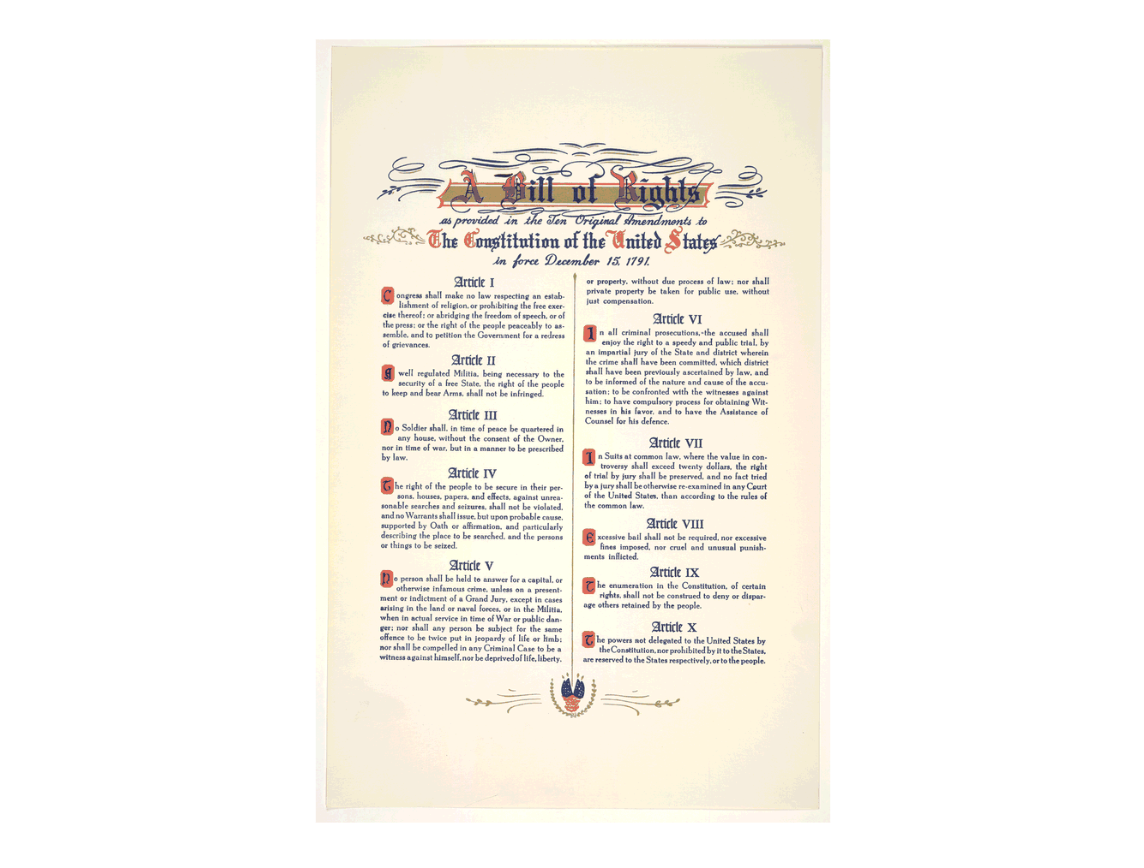
Explore the First Amendment free speech rights
of students...through analysis of Supreme Court decisions.
Students will practice summarizing interpretations of Freedoms of Speech under
the First Amendment.
Should schools be able to limit student speech?
In this sequence of lessons, students will explore the first amendment free speech rights of students through analysis of Supreme Court decisions. Students will practice and apply skills for analyzing primary source documents and will summarize their learning in a public service announcement informing fellow classmates of what their First Amendment free speech rights in school are.
Focus skills include:
- Summarization
- Answering text-dependent questions
- Active reading
- Stating opinions supported with reasoning and evidence
Focus Academic Language: students will develop language for reasoning, using sequences with linear and nonlinear relationships, evidence, and details through...
- Nominalizations to name abstract concepts, ideas, and ideologies (e.g. freedom)
- Dependent clauses to express details such as causality, place, manner, duration, extent
- Complex sentences to clarify causal, linked, time-bound, or sequential relationships
- Expanded noun groups to add details
- Connectors to maintain chronological, causal or logical relationships ("as a result," "meanwhile," "later," "in order to")
Language-aware lessons are intended to support all students, especially Multilingual Learners who are still developing in English, access primary-source rich learning
The English Learner Collaboration project of the Massachusetts Council for the Social Studies commissioned the development of lessons to illustrate applying English Language Development (ELD) teacher resources to History and Social Studies content.
Annotated with connections to the terms and principles from the WIDA 2020 ELD framework, and with suggestions for additional supports and preparation depending on the needs of the students in the classroom, this lesson provides a plan to meet not only history content objectives but language objectives.
These lessons are still under development, and are made accessible here to encourage teacher use and feedback. An editable copy is available upon request by emailing projects@masscouncil.org.
Suggested citation for language-aware lessons linked below and in on the parent page where this page is linked: Audet, A. and Noyes, A. (2022). Primary source lessons demonstrating practical applications of WIDA 2020 principles and resources for elementary, middle school, and high school social studies teaching. Extending the reach of primary sources: English Learner Collaborations project of the Massachusetts Council for the Social Studies. http://www.emergingamerica.org/english-learner-collaborations
Download:


